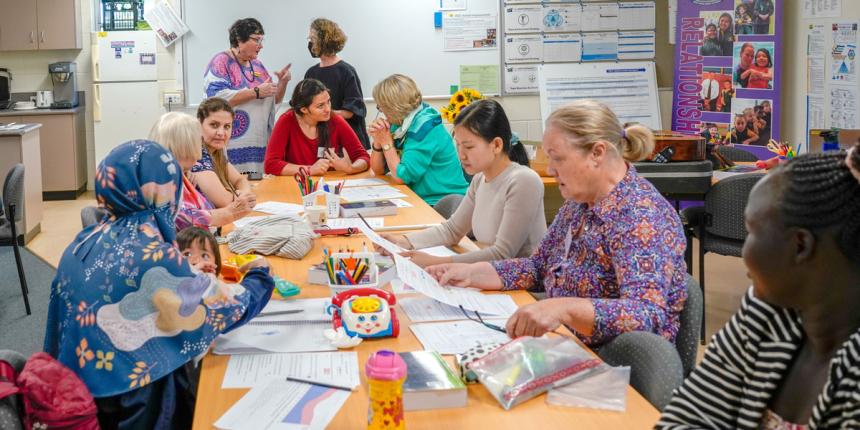
There is a great deal of evidence that families play a critical role in supporting their children’s early learning and development. So, it’s no wonder that greater engagement between families and the staff at early childhood education and care (ECEC) services or schools generally results in better outcomes for children and young people.
That’s why the Australian Education Research Organisation (AERO)’s vision of equity and excellence in educational outcomes across Australia relies on educators, teachers and leaders working together with families to support children’s learning and development.
Tools for effective family engagement
There is no one-size-fits-all approach to family engagement, as every ECEC service and school is different. Nevertheless, there are a number of proven, evidence-based strategies which schools and ECEC services can use to help foster the relationships with children and their families.
Last year, we released family engagement practice guides for early childhood, primary and secondary school levels. These guides make recommendations based on the best available research evidence about how educators and leaders can engage with families to improve children’s learning outcomes. These guides outline both 'promising' and 'not promising' approaches drawn from multiple studies.
Building on the recommendations captured in these practice guides, we’ve released a series of practical resources, developed by ARACY, to support and facilitate change in primary and secondary schools.
The primary and secondary promising approaches audit tools help school teachers and leaders reflect on their current approaches and plan how to implement best practice within their own context.
The primary and secondary family engagement implementation checklists can be used with the audit tools to plan the implementation of your school’s approaches for engaging with families to support children’s learning.
Family engagement in action
Together with the release of the audit tools and checklists, we have worked with Schools Plus to produce several case studies showing family engagement in action:
- Supporting Linguistically Diverse Families Through English Classes looks at Darling Heights State School’s literacy support program and how this has helped foster family engagement in their diverse school community.
- Supporting Complex Learners Through Family Engagement looks at Clarke Road School’s learning and assessment framework, the ‘Passport for Learning’.
We've also published 3 ECEC case studies showing what family engagement looks like at their service:
- Engaging with Families at Goodstart Early Learning Tuggerah
- Engaging with Families at Wynnum Family Day Care
- Engaging with Families at Canning Vale Prekindy.
Ongoing family engagement
In addition to the tools and case studies, we’re also producing a suite of guides that tailor promising approaches to specific groups.
The role of the family as a trusted partner and contributor to learning outcomes is recognised across and within projects on AERO’s Research Agenda.